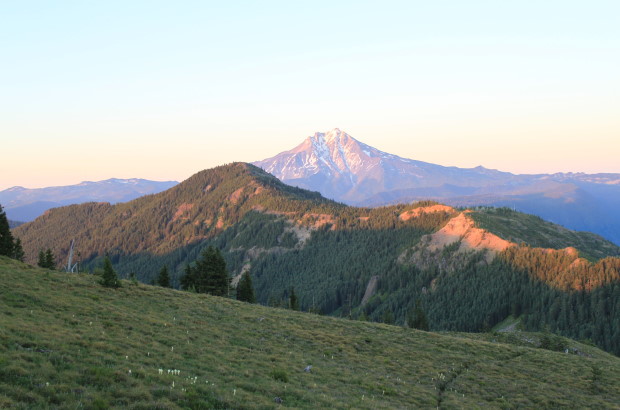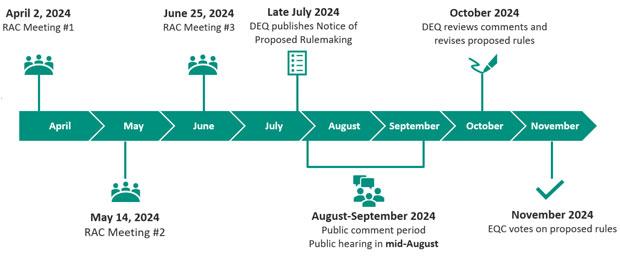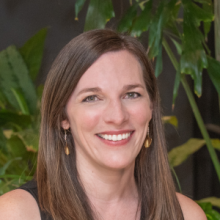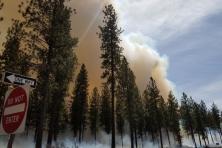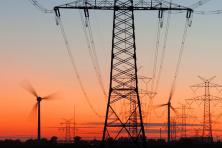Meaningful climate progress can take a lot of work—but it’s so very important. Case in point: setting up Oregon’s Climate Protection Program took years of advocacy, planning, and community consultation before the Department of Environmental Quality launched the program in January 2022. The landmark climate program required Oregon’s fossil fuel companies and industrial facilities to dramatically reduce their pollution, and would create millions of dollars a year to invest in clean energy projects benefiting frontline communities across the state.
But we know what happened next: powerful fossil fuel companies and their industry groups challenged the Climate Protection Program in court. Late last year, a state court invalidated the whole program based only on a procedural technicality. That was a grave disappointment. But it doesn’t mean the fight is over!
Now, DEQ has begun a months-long rulemaking process to reinstate our cornerstone climate program. Climate Solutions is at the table helping shape the program, along with other climate, environmental justice, tribal and frontline community representatives. But guess who else is at the table? The same oil and gas industry opponents who challenged the original program in court!
We will all have opportunities to speak up, to defend the Climate Protection Program and get it back in place before we lose even more time. Meanwhile, you can bet that the fossil fuel companies and other opponents will be working as hard as ever to turn back the clock on this climate progress.
This is a struggle that we can win, together, for the benefit of all Oregon communities and our shared future.
About the Climate Protection Program
The Climate Protection Program (CPP) is crucial for Oregon to meet its climate goals. It creates a clear, achievable plan to help the state do so by requiring the largest fossil fuel companies to cut their carbon pollution dramatically over the coming years.
Under the CPP, Oregon’s oil and gas companies must cut emissions by 50% by 2035 and 90% by 2050. These emitters can also contribute to the innovative Community Climate Investment program, which is estimated to deliver more than $150 million to help lower Oregonian’s energy bills and support clean energy projects that benefit Black, Indigenous, people of color, low-income, rural and other communities across the state.
Prior to the Court’s decision to invalidate the rules, the Climate Protection Program was projected to cut oil and gas companies’ emissions almost in half by 2035, and invest hundreds of millions of dollars annually in environmental justice communities across Oregon. Oregonians were eagerly awaiting Community Climate Investments in their communities in projects like rooftop solar, home energy efficiency retrofits, and electric vehicle infrastructure.
What’s happening now, and what comes next?
In April 2024, Oregon’s Department of Environmental Quality’s (DEQ) launched a rulemaking process to reinstate the program by the end of this year and named a Rulemaking Advisory Committee to support the agency as it works toward reinstatement of the CPP. The program will create thousands of jobs, cleaner air, and healthier communities.
The rulemaking advisory committee is made up of experts in climate policy and solutions, community organizations, public health and labor advocates, business leaders, and members of the fossil fuel industry and other regulated industries who will be providing input to DEQ over the next several months as they reinstate the program. Climate Solutions is serving on the committee, and we are part of a growing coalition supporting reinstating a strong climate program. Our coalition issued a news advisory to summarize the first rulemaking advisory meeting and note key takeaways.
DEQ’s proposed rules to reinstate the Climate Protection Program will be informed by the advisory committee (who will meet two more times) and public comments during a robust public comment period from August-September and a public hearing in mid-August. The program’s proposed rules will be reviewed and voted on by Oregon’s Environmental Quality Commission in November, and the program will be back in place before January 2025.
Key dates in the process are as follows, including opportunities for public comment:
- May 14: Second rulemaking advisory committee meeting
- June 25: Third, final rulemaking advisory committee meeting
- July: DEQ publishes Notice of Proposed Rulemaking
- August-September: Public comment period
- Mid-August: DEQ hosts public hearing
- Fall: DEQ reviews comments and makes any needed revisions
- November: EQC votes on proposed rules to readopt CPP
- January 2025: New CPP program starts implementation
Through this process, it will be important for environmental justice and climate advocates to speak up as we did before, when the CPP was first being developed. The oil and gas companies are already making their arguments for why the plan should be scrapped or significantly weakened; we can’t let them succeed in this cynical effort.
Click here to make sure you’re signed up to receive Climate Solutions action alerts, and we’ll be sure to send you information on how to add your voice during the public comment period coming up this summer.
Together we can protect this monumental climate progress in Oregon. Thanks for all that you do!
